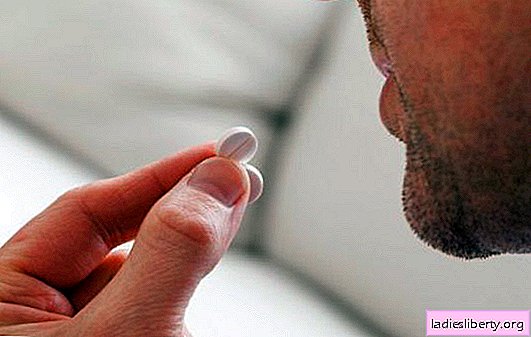
Only in the last century, vitamins were discovered, and today - scientists have almost learned how to treat cancer. Some are skeptical of technological progress, but it does not stand still. In 2018, scientists made 13 important discoveries that will improve people's quality of life in the future.
"Stimulator" for the brain
Scientists from the university in Dusseldorf have developed a device for stimulating the head mosaic, which resembles a pacemaker. According to preliminary data, the device improves cognitive processes in people suffering from epilepsy, Parkinson's disease or Alzheimer's. The device sends impulses to certain areas of the brain, and stimulates motor and cognitive activity.

Double face transplant
In France, a team of surgeons performed a double face transplant for the first time. The test was a person who received a skin transplant ten years ago, but then a rejection reaction arose. Doctors have shown that the transplant can be repeated even with operations where the risk of rejection is very high.
Potency pill
Scientists from the University of Washington have developed a pill that improves male potency and fertility without significant side effects. The name of the experimental drug is DMAU. Efficiency experiments show optimal results: tablets affect the production of testosterone and improve sperm quality.
Cycling as the best sport for the immune system
An Italian study found that cycling supports the immune system of older people in the same form as a 20-year-old. Regular long-distance running also increases T-cell production and improves protection against disease.

New antibiotic
The antibiotic Teixobactin gives new hope to defeat drug-resistant bacteria. It was synthesized by the University of Lincoln and tested on rats. The results are positive: most bacteria die under the influence of a new agent. Next year, scientists are investigating the effects of the drug on humans.
New syringe without a needle
A team of engineers working with the Massachusetts Institute of Technology has developed a device that injects drugs without a needle into the body. The basic principle of action: the power of Lorentz. The device punches a tiny hole at the speed of sound, and injects the medicine directly under the skin.
Cancer vaccine
Stanford University has announced the start of an experimental phase of a new antitumor therapy. A cancer vaccine consists of two substances. They stimulate the immune system and are able to remove tumor cells even in distant parts of the body.

Genetic Disease Therapy
Scientists from the Salk Institute managed to cure a rare genetic disease by correcting the genome of diseased cells. This was made possible thanks to a new DNA editing technology that allows you to adjust certain nucleotide sequences. The accuracy with which the correction was carried out was impressive.
Electronic vital signs monitor
The University of Tokyo recently introduced semiconductor technology that can interpret life processes and transfer them to a display on the skin. The device reads electrocardiography and displays it on a thin screen. All data can be sent directly to the doctor.
Synthetic human skin
A team of bio-engineers from Vect discovered a group of polymers that can be transplanted into the human body. Because of their great adaptability, they were compared to chameleon skin. Polymers have a significantly lower potential for the development of inflammation and implant rejection than other similar materials.

Edible Sensors and Virtual Reality Operations
French scientists have developed sensors that are easily swallowed and designed to measure gas in the digestive tract. Devices help with high accuracy to measure the concentration of various gas molecules in the intestine. They are a useful tool for the diagnosis of diseases of the digestive system and colon cancer.
Surgeons in different countries for the first time performed surgical intervention in virtual reality in a patient with cancer. The effectiveness of the operation increased by almost 9% compared with the initial statistical indicators.
Cardiac Stem Cells
Syracuse University has created stem cells of heart tissue. The heart is the first organ that develops in the fetus. A medical discovery will help identify drugs that affect the formation of heart tissue.
UV light that kills viruses
The study showed how effective ultraviolet rays are in controlling flu viruses. The use of UV light in public buildings - schools, hospitals, government agencies and airports - reduces the spread of viruses.
Medical discoveries will help create new drugs and technologies that will cure serious illnesses. However, clinical trials of most devices will end no earlier than by 2025.











